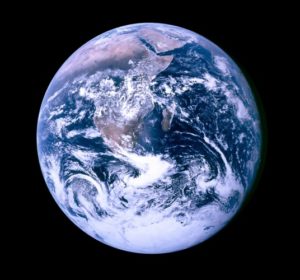الضرائب على اللحم لازمة للغاية لتبلغ باريس الأهداف المناخية
يدعو الحزب من أجل الحيوانات الحكومة لحمل الضرائب على اللحوم. إنتاج اللحوم يساهم بشكل كبير في ظاهرة الاحتباس الحراري. ويشير النائب فرانك فاسينبرخ (Frank Wassenberg) عضو PvdD أن ضريبة أعلى على اللحوم هو أمر ضروري من أجل الحد من انبعاثات CO2 لتبقى درجات الحرارة أقل من 1.5 درجة.

قمة المناخ في باريس في ديسمبر الماضي لم تؤد إلى ترسيخ الإتفاقات. ولكن تم الإتفاق بالفعل بأن تحاول الدول الحد من انبعاث الغازات المسببة للاحتباس الحراري حتى يبقى ارتفاع درجة الحرارة أقل من 2 درجة و من الأفضل ليس أعلى من درجة واحدة ونصف. ويمكن للدول أن تقرر بنفسها الطريقة التي يحدون بها من انبعاثات CO2.
تقول منظمة الصحة العالمية أن صناعة الماشية هي واحدة من أكبر بواعث الغازات المسببة للاحتباس الحراري. حيث تبعث صناعة المواشية بجميع أنحاء العالم 7.000.000.000.000 كلغ من غازات الاحتباس الحراري. ففي الوقت الذي تحاول فيه الحكومة الهولندية القيام بالغسل الأخضر للمعاناة الحيوانية تحت عنوان الزراعة الذكية، يكون حجز المنافع المناخية أسهل وأنفع عن طريق الحفاظ على عدد أقل من الحيوانات في مجال تربية الحيوانات. ويمكن تحقيق ذلك من خلال التركيز أكثر على المزيد من نمط الخضروات والزراعة المستدامة.
يقول النائب فرانك فاسينبرخ عضو PvdD “إنتاج اللحوم يضر البيئة ويساهم في ظاهرة الاحتباس الحراري. نحن في هولندا نعرف مبدأ أن الملوّث يدفع الثمن. سيكون بالتالي من المنطقي تطبيق ذلك على اللحوم. وهذا ممكن من خلال فرض ضريبة على اللحوم. وبذلك ستنضم هولندا إلى بلد مثل الدنمارك. حيث تفكر الحكومة الدنماركية أيضا فرض ضريبة على اللحوم، لأنها تعتبر أنه فقط طلب المستهلكين تناول كميات أقل من اللحوم لا يكفي “.
The Party for the Animals calls on the government to introduce a meat tax for the production of meat strongly contributes to global warming. Party for the Animals MP Frank Wassenberg claims that higher VAT should be levied on meat to reduce the CO2 emissions to such an extent that the warming will remain below 1.5 Celsius.

The Climate Summit in Paris last December did not lead to ruthless agreements. The countries did agree that they would attempt to reduce the emissions of greenhouse gases to such extent that the temperature rise would remain below 2 Celsius and preferably not higher than one and a half Celsius. The countries are free to choose how they will reduce CO2 emissions.
The World Health Organisations states that the livestock industry is one of the largest emitters of greenhouse gases. Worldwide, the livestock industry emits 7.000.000.000.000 kilo of greenhouse gas in total. While the Dutch government is attempting to greenwash animal cruelty in terms of climate-smart agriculture, the easiest and fastest way to achieve climate benefits would be to reduce the number of animals in the livestock industry. This can be achieved by adopting a more vegetal diet and sustainable agriculture.
Party for the Animals MP Frank Wassenberg: “The production of meat has an impact on the environment and contributes to the greenhouse effect. In the Netherlands we maintain the principle that the polluter pays. Logically, the same should apply to meat. It can be effected through a meat tax. The Netherlands would then be in line with a country like Denmark. The Danish government is considering to introduce a meat tax because they believe that just asking consumers to eat less meat is not enough.”